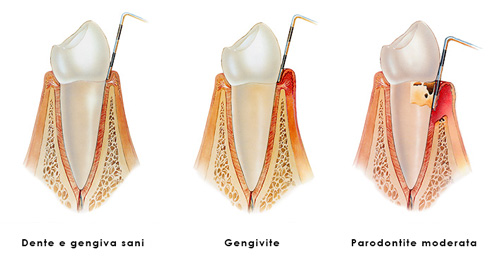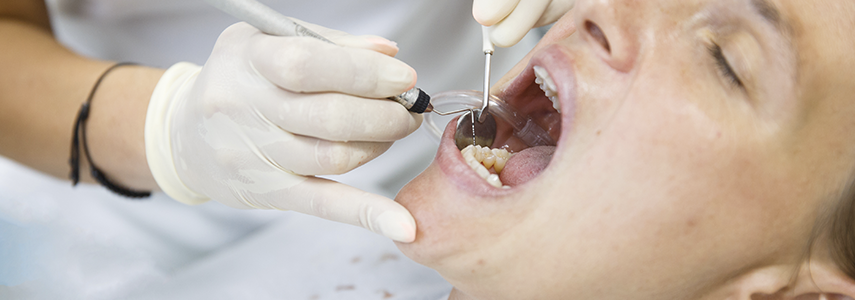Modern dentistry is increasingly focused on non-invasive treatments, both in the case of complex interventions such as an implant surgery intervention, and for other types of therapies such as those to treat periodontitis or caries.
Quality of life and oral health

Neglecting oral health can negatively impact overall health and quality of life. However, many people continue to avoid the dentist because they are linked to an idea of dentistry synonymous with pain and discomfort.
All of this becomes a vicious circle. Non-invasive treatments in dentistry are now on the agenda: taking care of one’s oral health is no longer synonymous with pain, with the great benefit of one’s well-being.
Good health of the periodontium is one of the main conditions for overall oral health. Periodontitis, or inflammation of the periodontal ligament due to plaque and tartar, is an annoying and dangerous disease, which can lead to tooth loss.
Treating periodontitis: non-surgical treatments
The treatment for the cure of periodonditis, depending on the severity of the disease, can be either surgical or non-surgical.
When the periodontal pockets are very deep it is necessary to proceed with a periodontal surgery.

With surgical treatment, an incision is made on the gum, the periodontal pocket is accessed and cleaned of bacteria and then the wound is sutured.
However, it is not always necessary to arrive at this, it is possible to cure periodontitis even with non-surgical treatments and to preserve the patient from traumas that impact on the quality of life.
Recent research published in the February 2020 Clinical Oral Investigation has shown that patients undergoing non-surgical treatments for periodonditis have better oral health and consequently a better quality of life.
Research on treatments to cure periodontitis

For the research, clinical cases of adult patients with periodontitis undergoing long-lasting non-surgical periodontal treatment were analyzed.
Non-surgical treatments have a long duration over time, unlike surgery, but research has shown that patients undergoing non-surgical therapies have improved their overall oral health and consequently their quality of life over time.
In particular, oral health has been shown to improve progressively at 1-2 weeks, 3-4 weeks and 6-12 weeks post-non-surgical treatment.
Treat periodontitis: periodic check-ups
Monitoring the state of oral health allows you to avoid getting to the drastic point of necessarily having to intervene with surgery.
Periodontitis, if diagnosed early, can be cured with non-surgical treatments with great benefit for the patient.
















